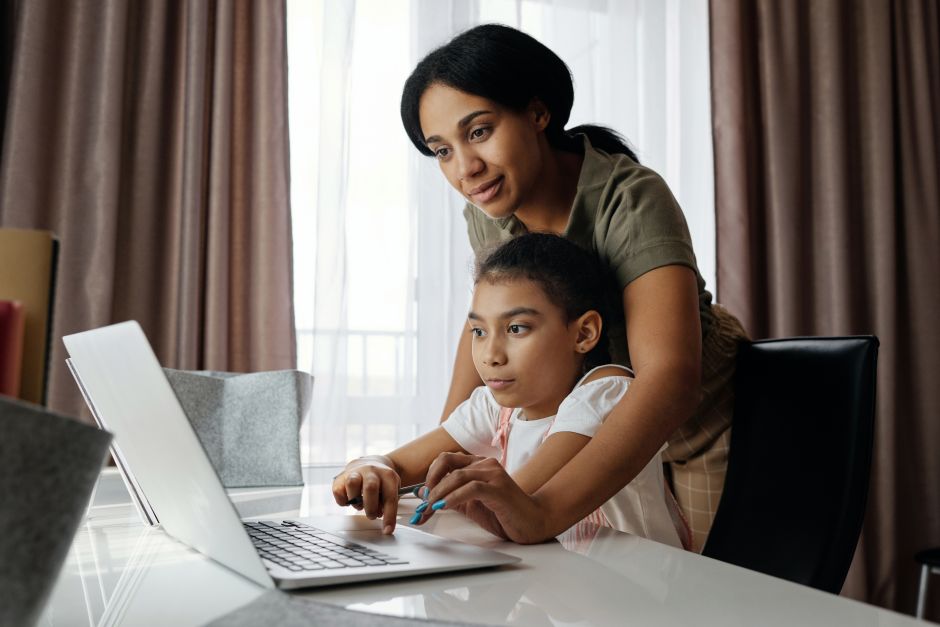
Virtual education from home. (Supplied)
Photo: Evelyn Alemán / Courtesy
At the beginning of this school year, the Los Angeles School District (LAUSD) sent me a letter that we parents had to study and sign with our children. The agreement committed me to helping my daughter achieve her academic goals. She studies at a high school in the San Fernando Valley, north of downtown.
Requirements included that parents attend some online college courses, while students had to comply with school and district regulations.
But in times of a pandemic, things seem unclear and not as easy for many parents as they were when schools were open from 8 a.m. to 3 p.m., or until 6 p.m., for after-school programs. the school. With the face-to-face system before the pandemic, students could rely on teachers and counselors for academic matters. Now everything has changed and it is a bit more complicated. Student needs are enormous and the deep academic gap that exists between low and high income students has become clear.

The commitment to help our children reach their school goals can be an unclear goal for many parents, perhaps stressful and unattainable for others, especially when you do not have internet access at home or when you cannot be present for reasons of I work to guide our children and that they fulfill their obligations.
For many parents of all socioeconomic levels, academic teaching from home is presenting a number of challenges, from the inability to provide an adequate and quiet space for their children to study, to the lack of internet access, lack of supervision for parents who they must work outside the home, and the worry about not having enough knowledge to help their children in the different school levels they attend.
For many low-income and public school parents, the extra-cost and private tutoring circles seen in many higher-income communities are not an option, and that is a cause for concern. Unable to provide additional tutoring for their children, many parents wonder if their children are actually learning.
All this exists without adding the external challenges to education faced by many families, such as fear of eviction from their homes, food insecurities, the need to care for relatives who are of legal age or with disabilities; In addition, the lack of health insurance and the stress of having to work outside the home, perhaps in jobs where exposure to the virus is a constant threat to health, and even losing your job.
That is why it is urgent to offer families the support of a coalition of nonprofit organizations that specializes in education or community outreach issues so that together with board members and community outreach staff of school districts, develop a strategic plan that provides multifaceted support to each family based on their needs.
If not, the parent-student agreement that we signed at the beginning of this year will not have much force or influence on the education of our children. It should be added, that it is critical that our political leaders do what is necessary so that students can access high-speed wireless internet.
With all the aforementioned challenges, now is the time to identify the various ways we should support families. In our Latino communities we always say that unity is strength, and this saying cannot make more sense than right now.
Evelyn G. Alemán is a Los Angeles resident and professional who focuses on helping the Latino community on social issues. She recently launched the group @OurVoiceforEducation of Facebook called Our Voice: Communities for Quality Education (Our Voice: Communities for a Quality Education). The group is a forum for parents, students, and educators to talk about education-related topics.





